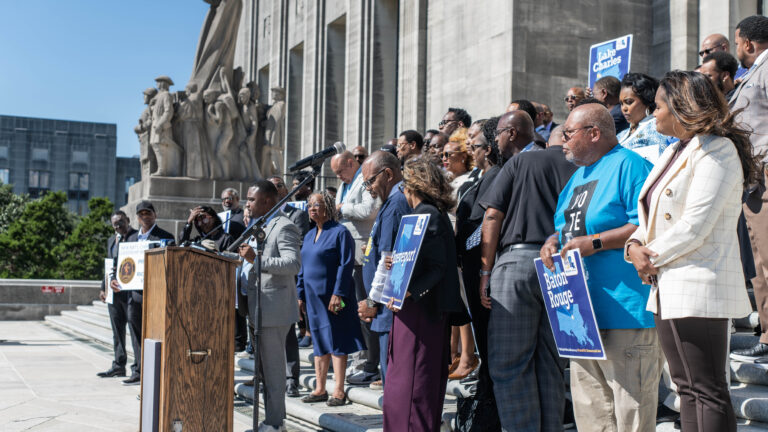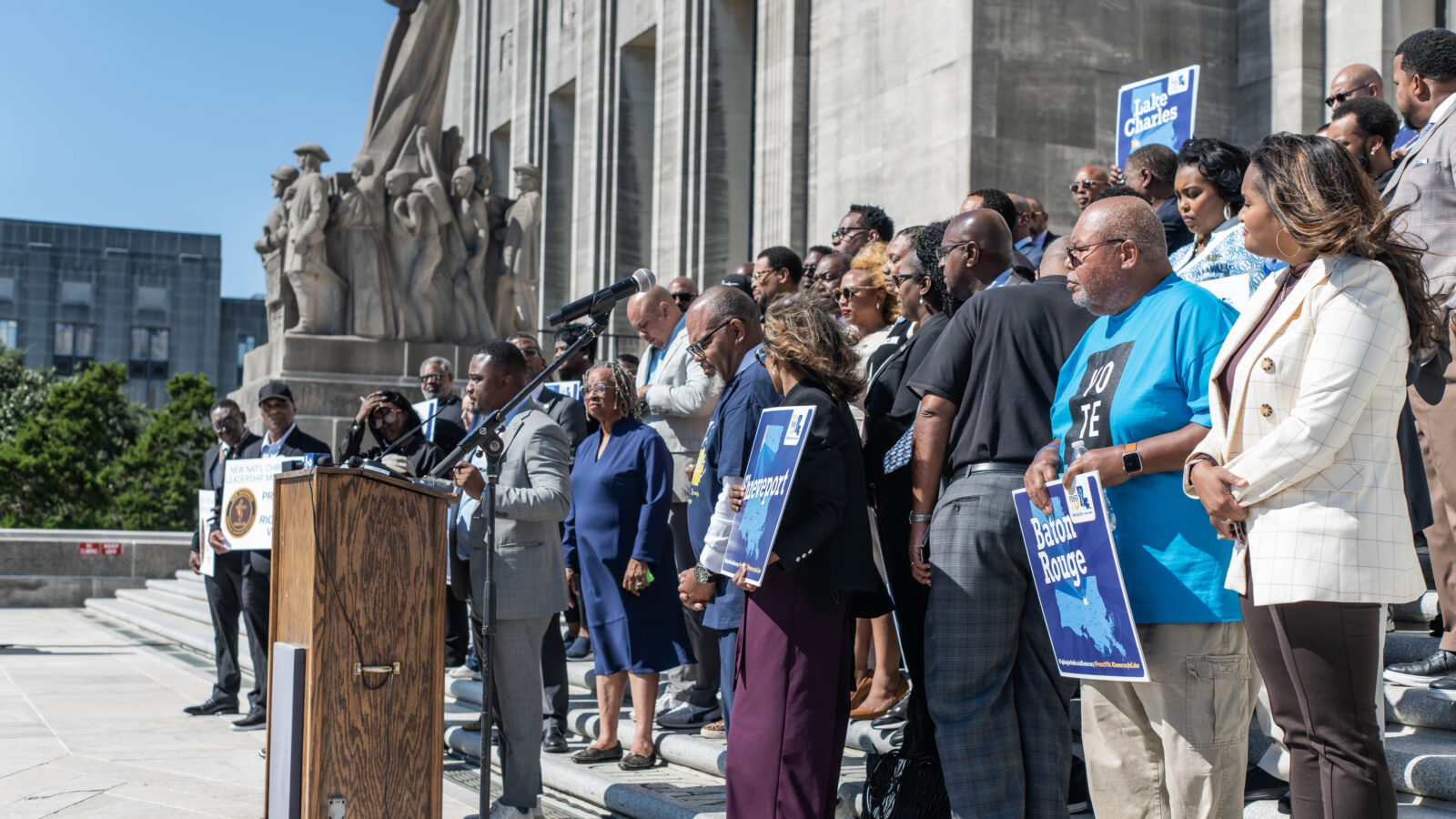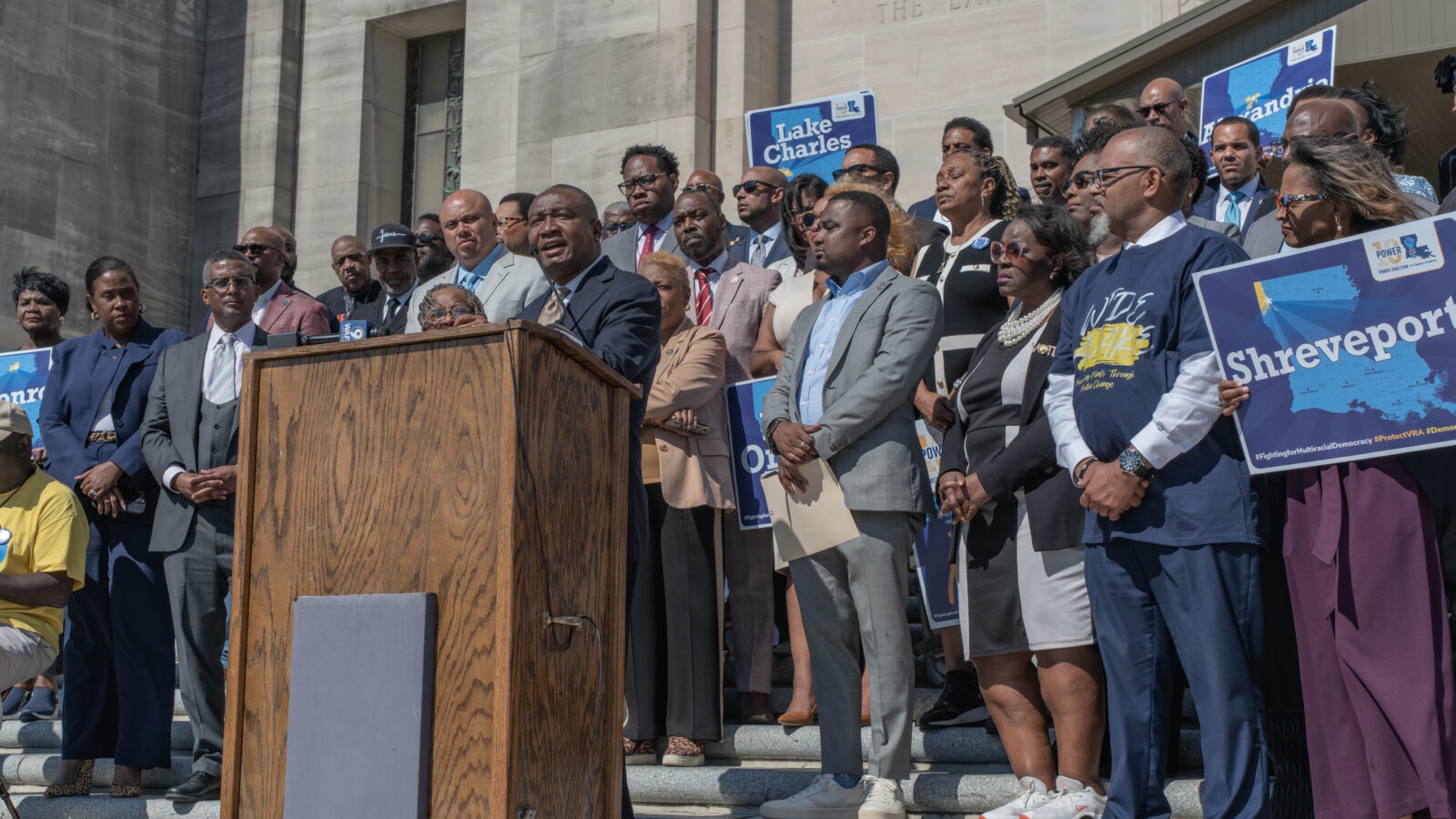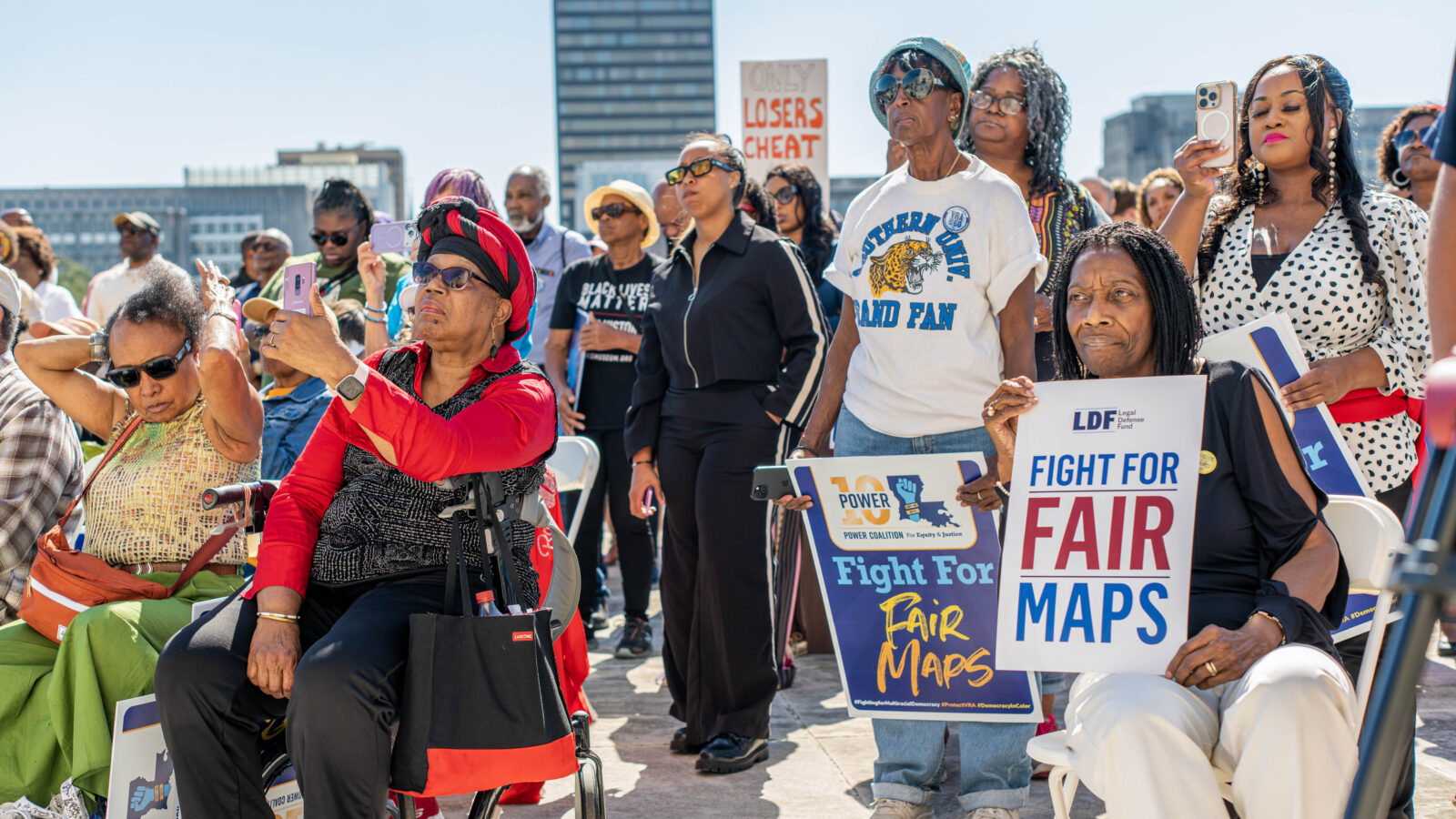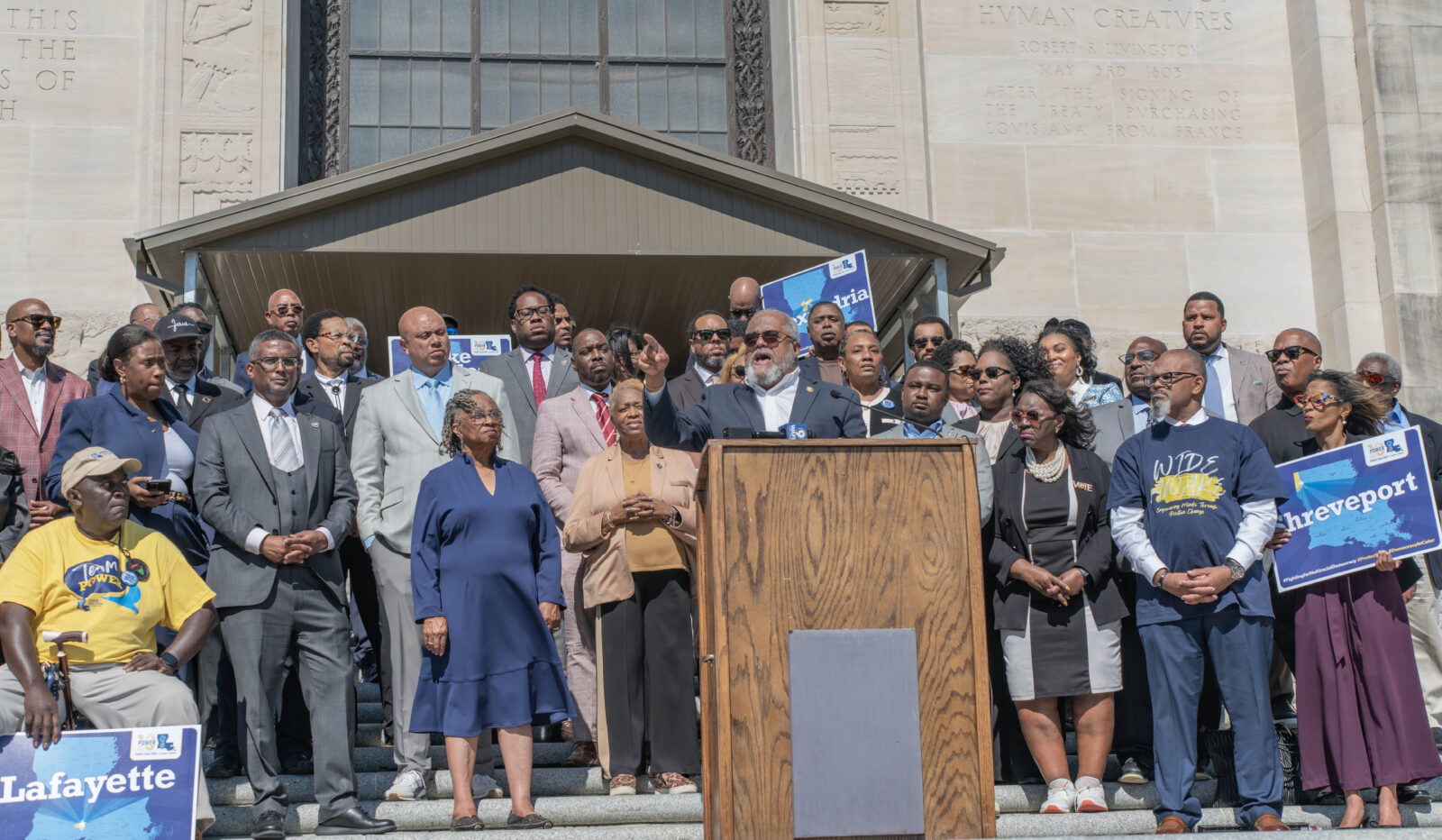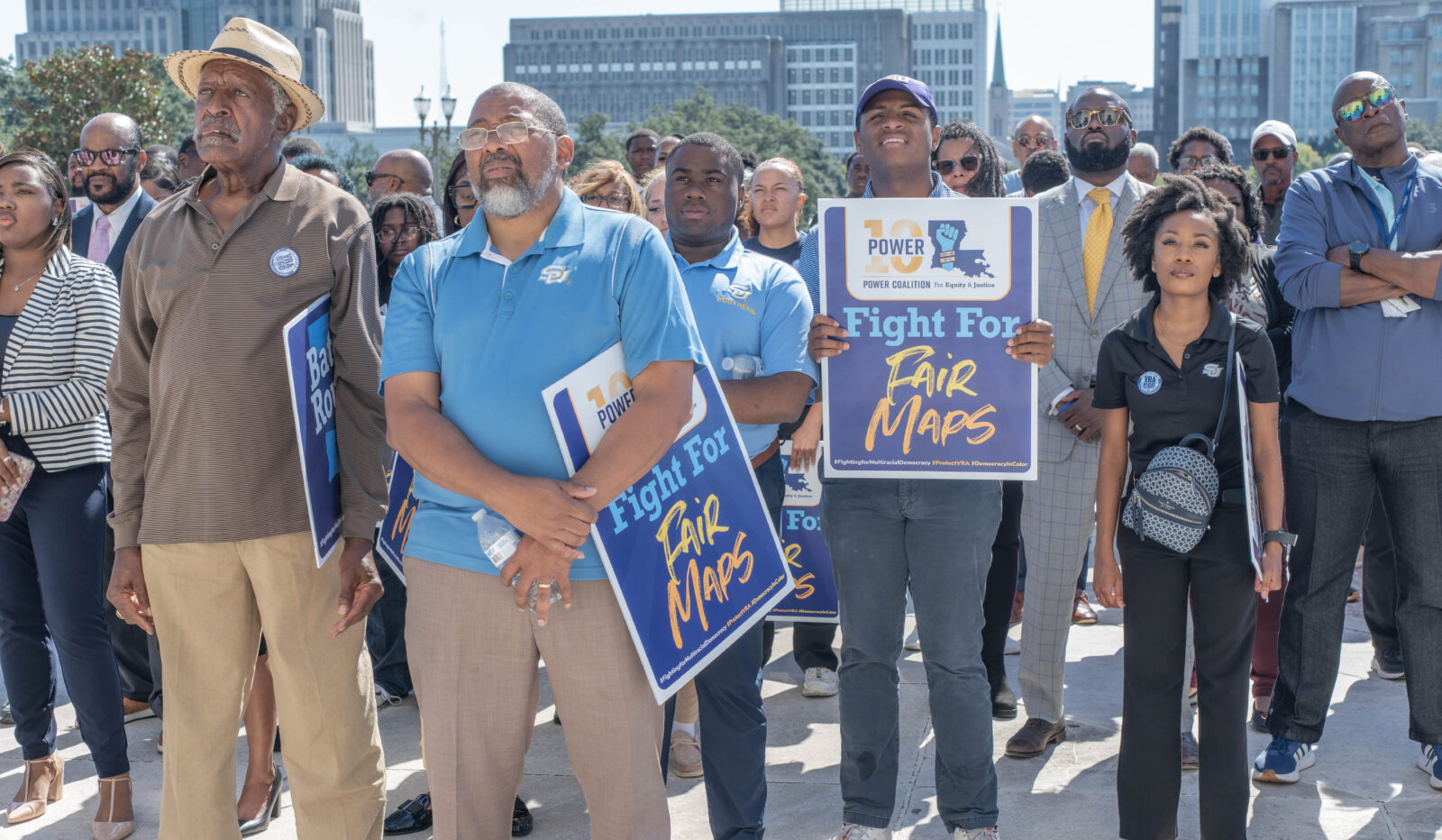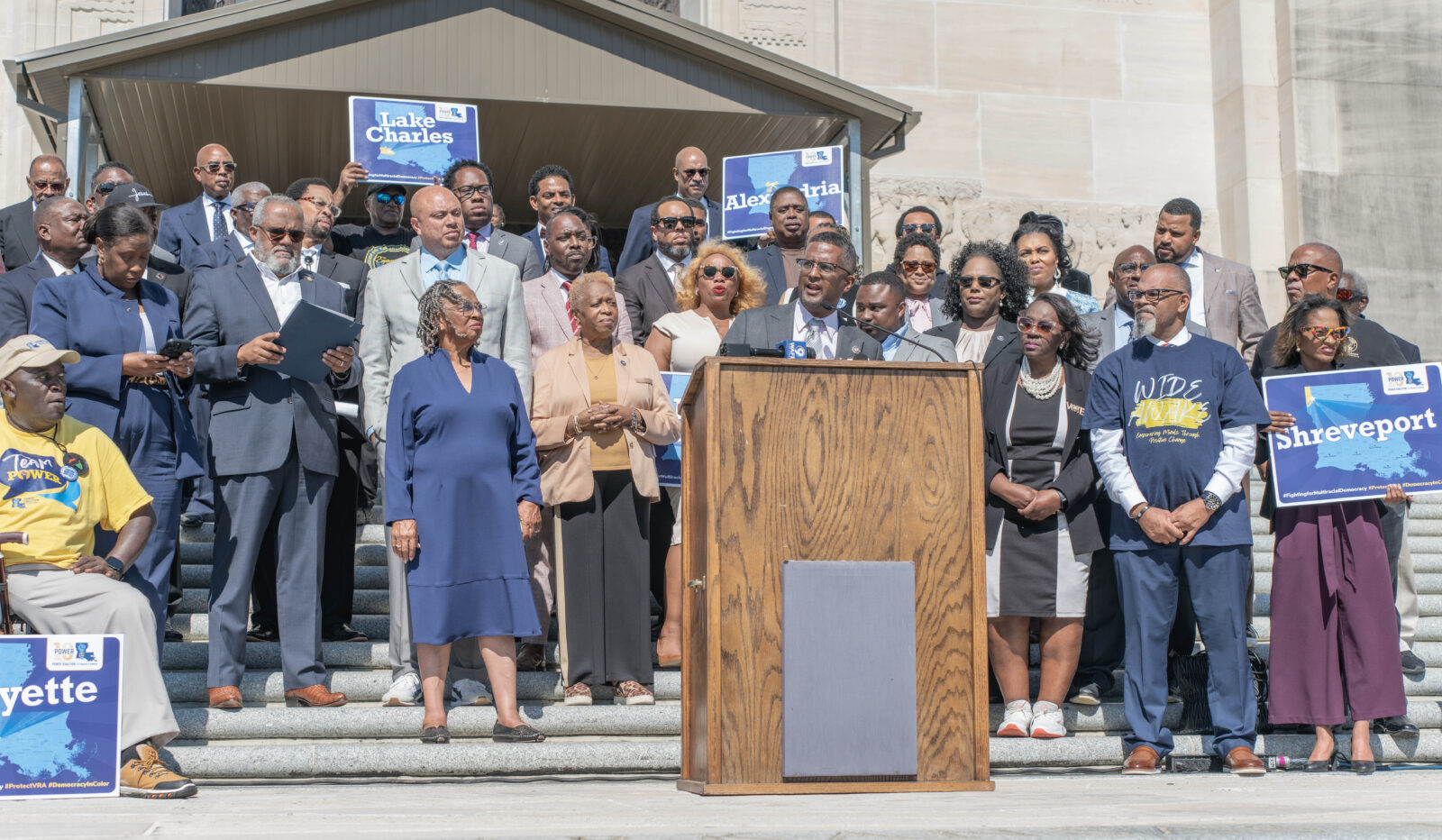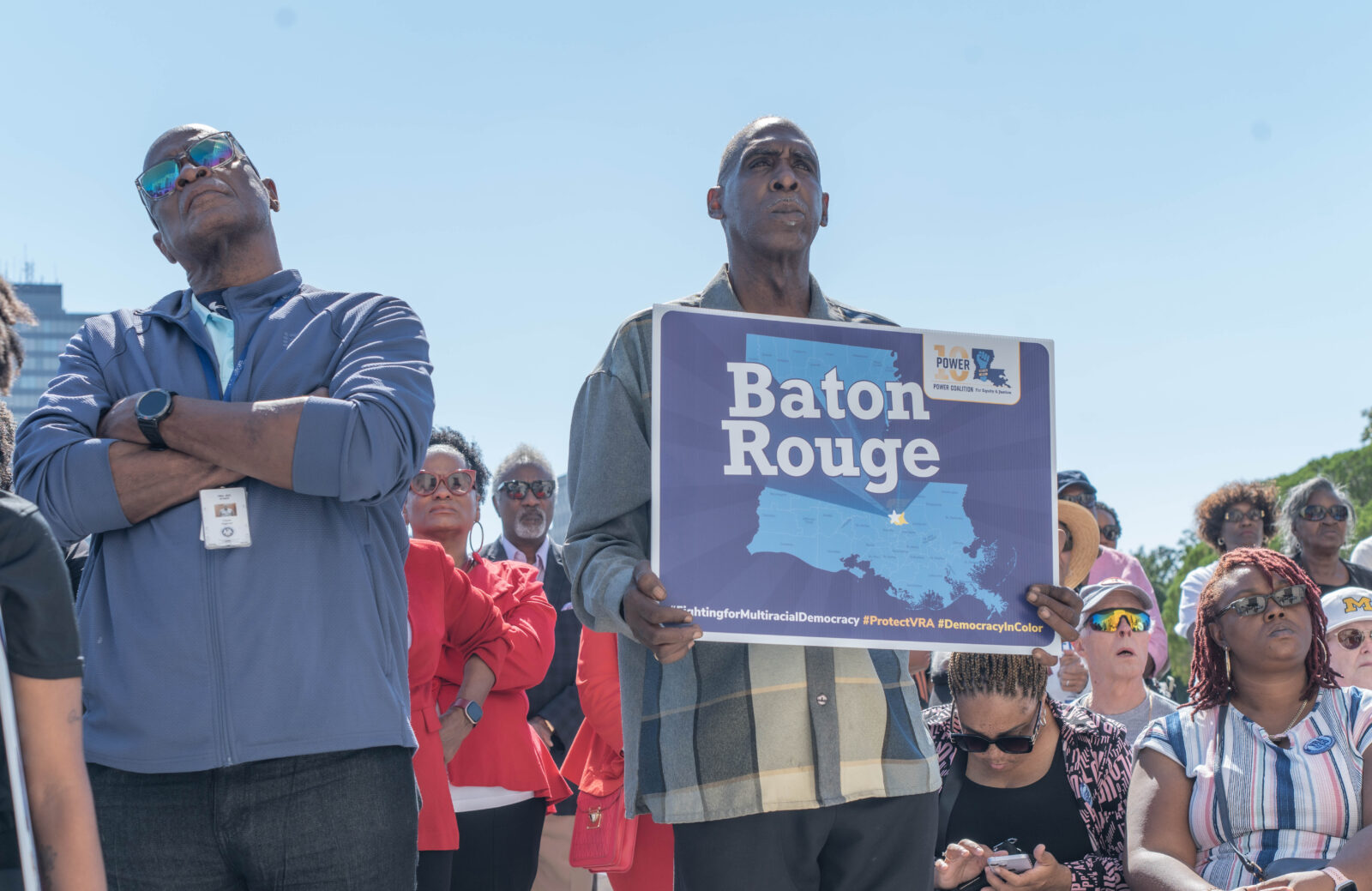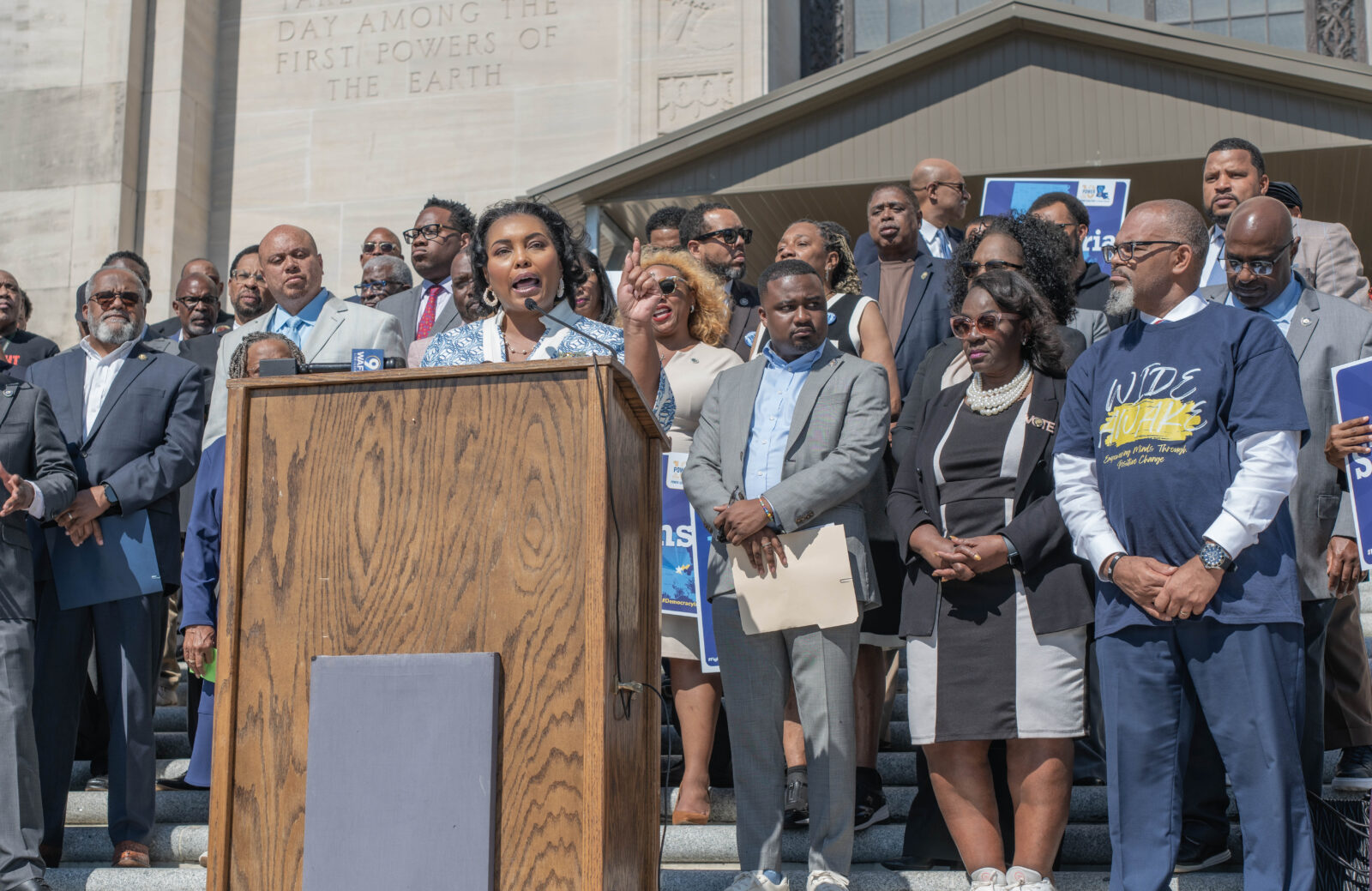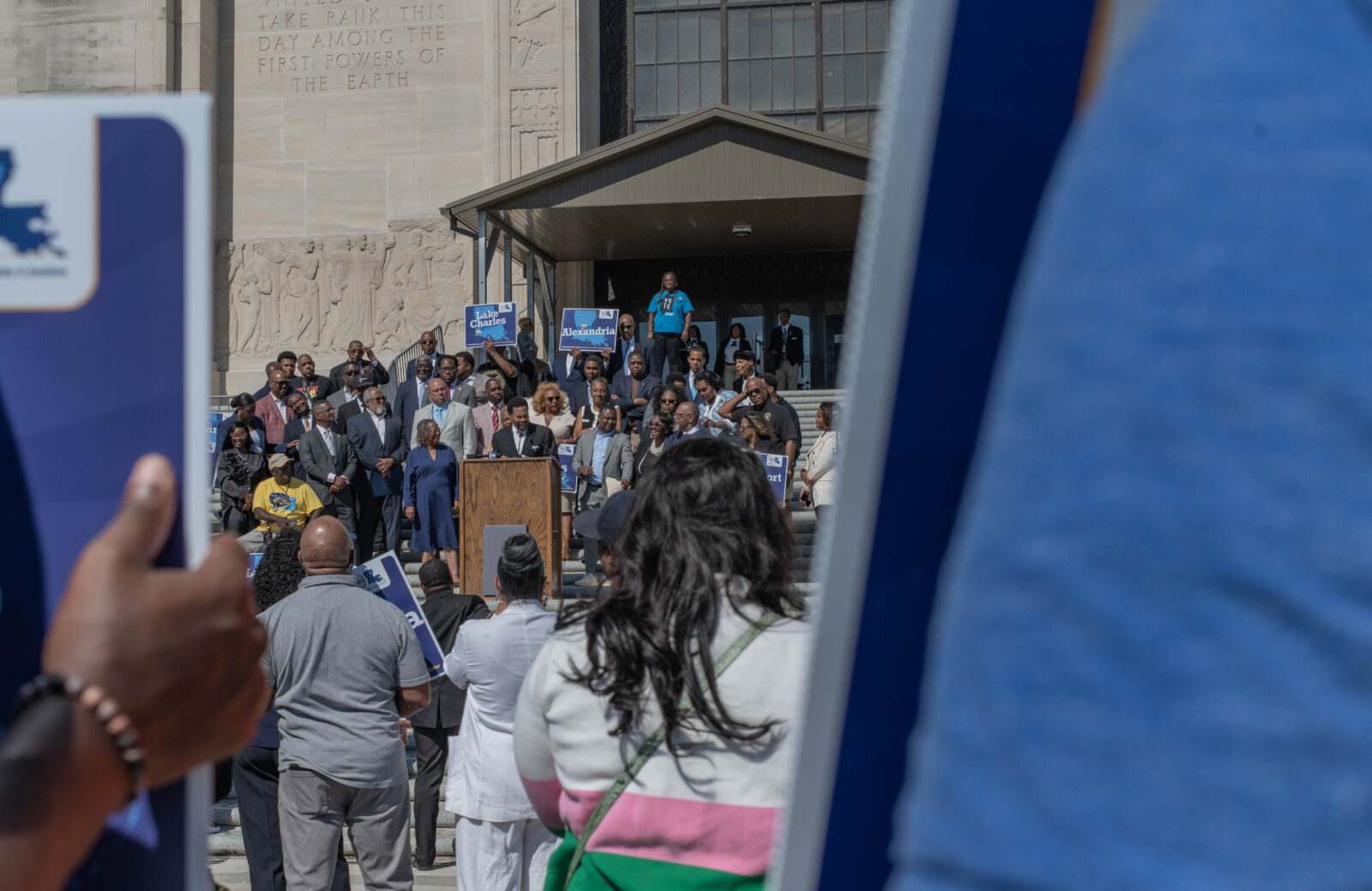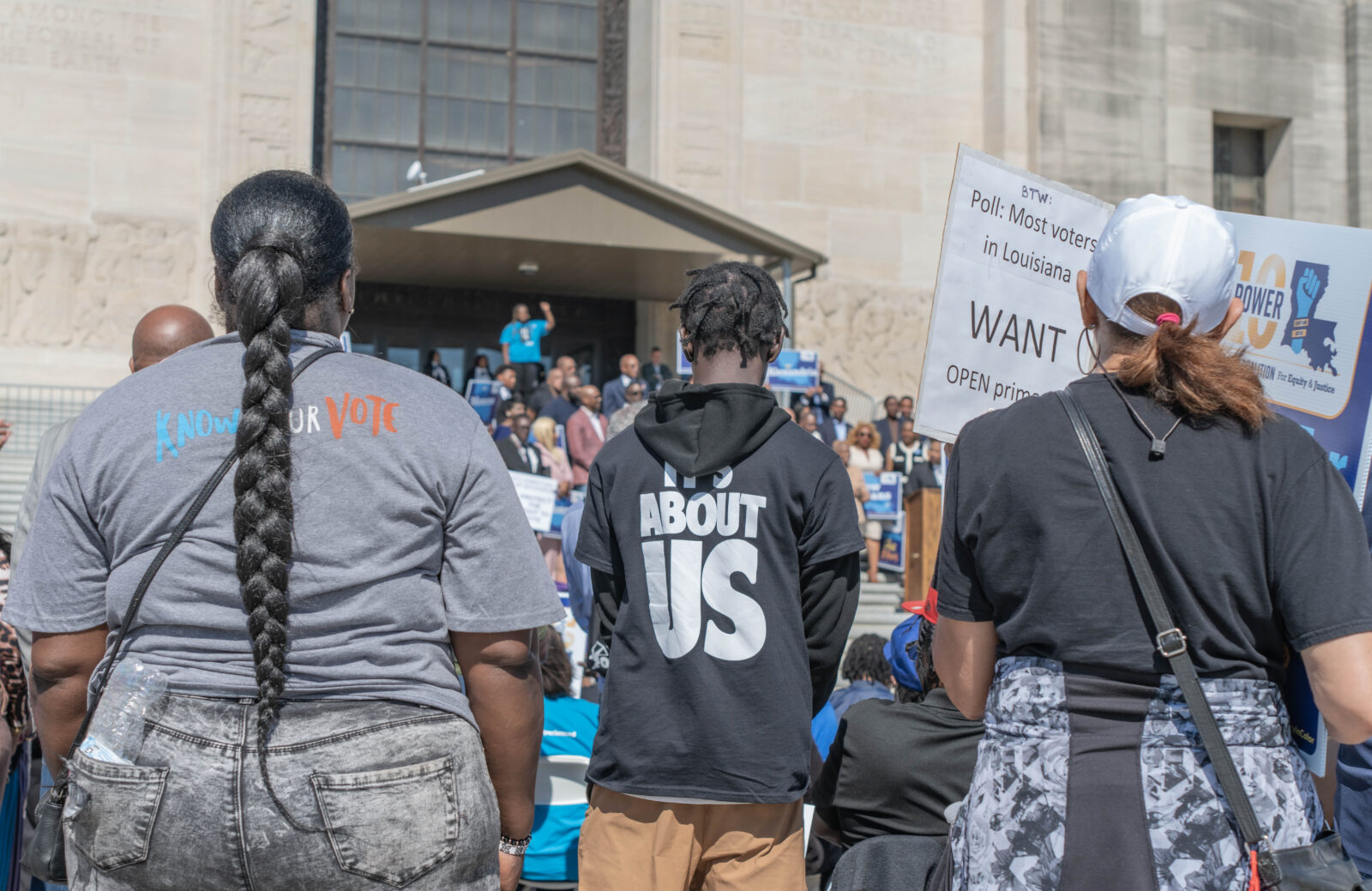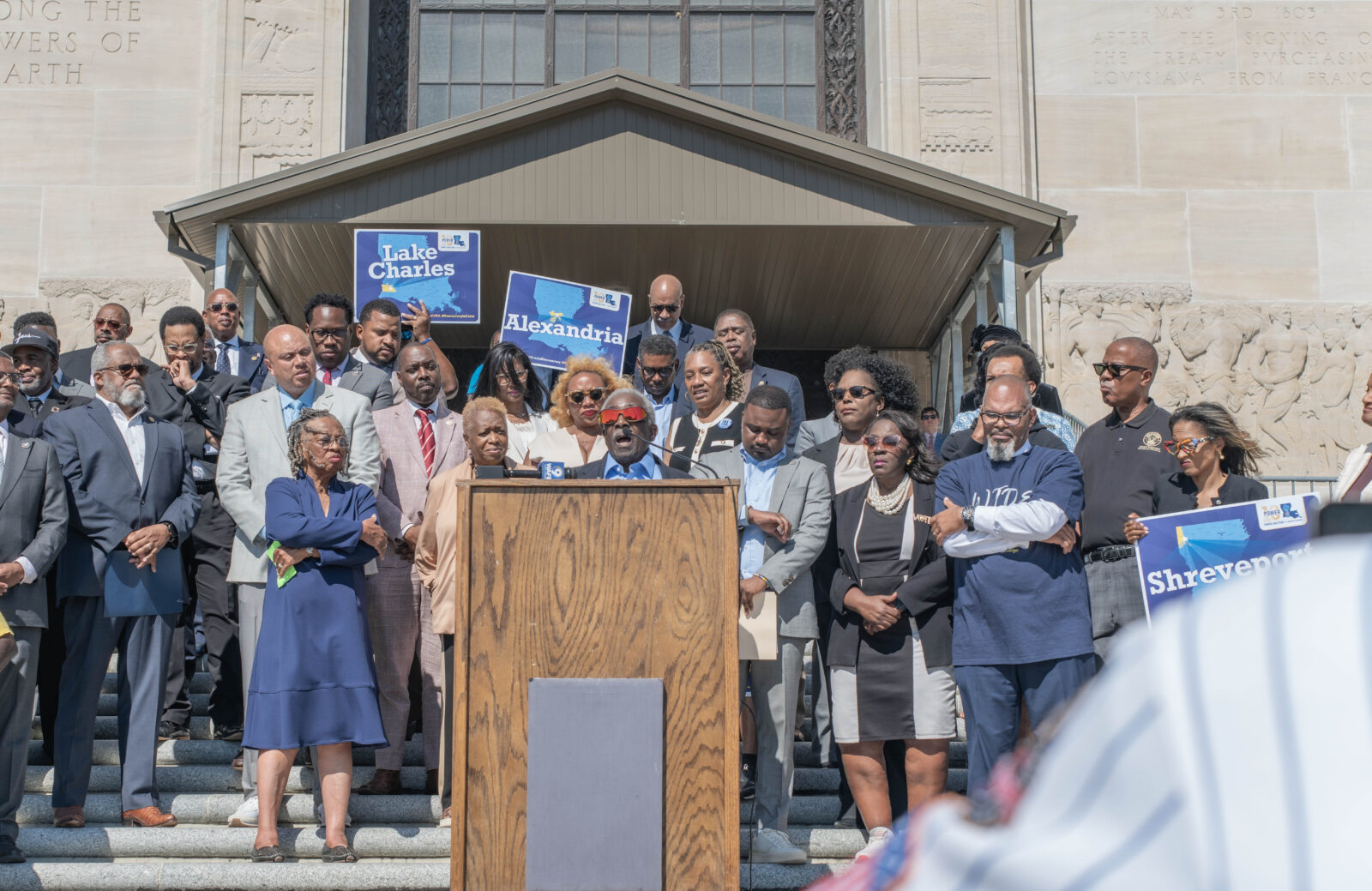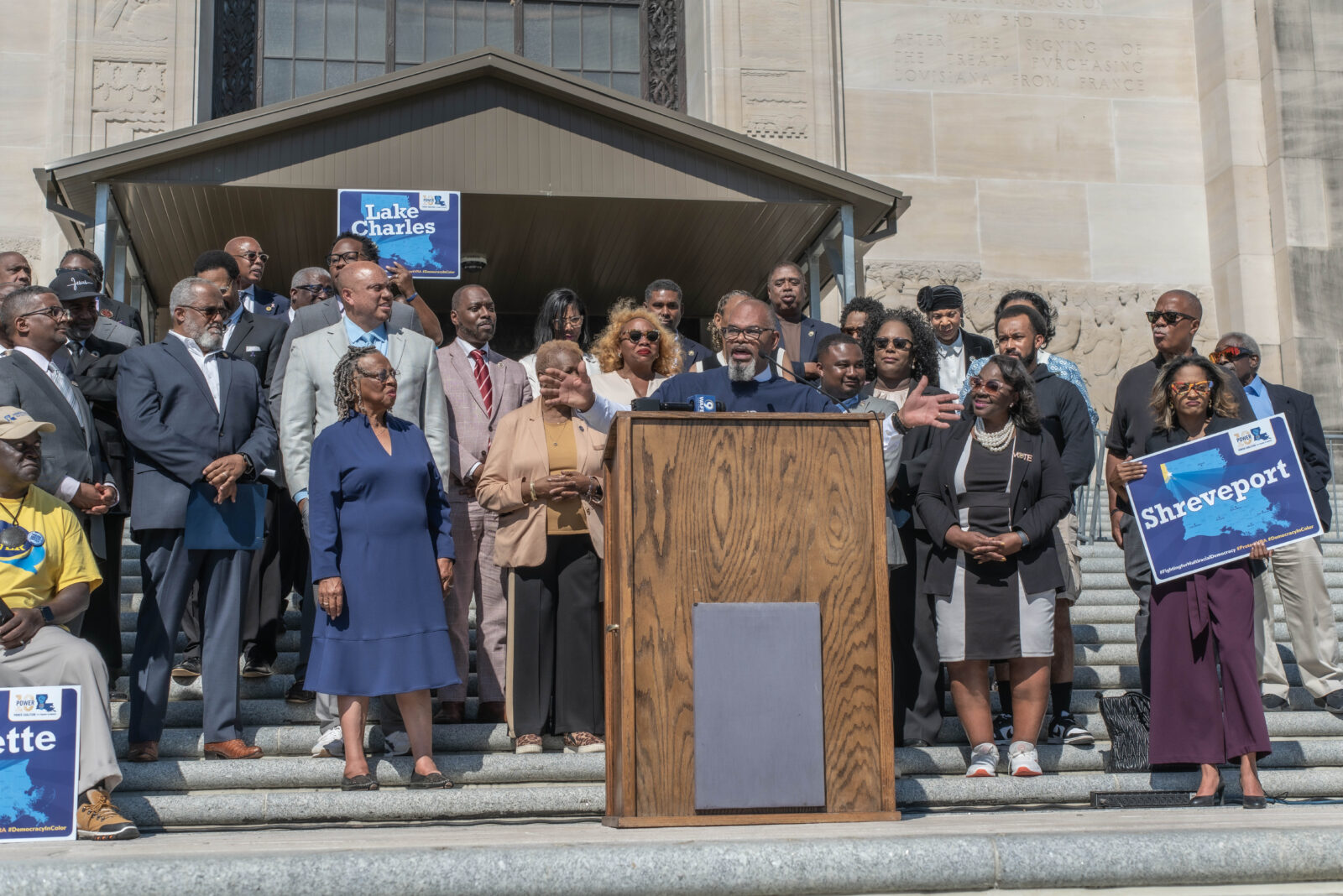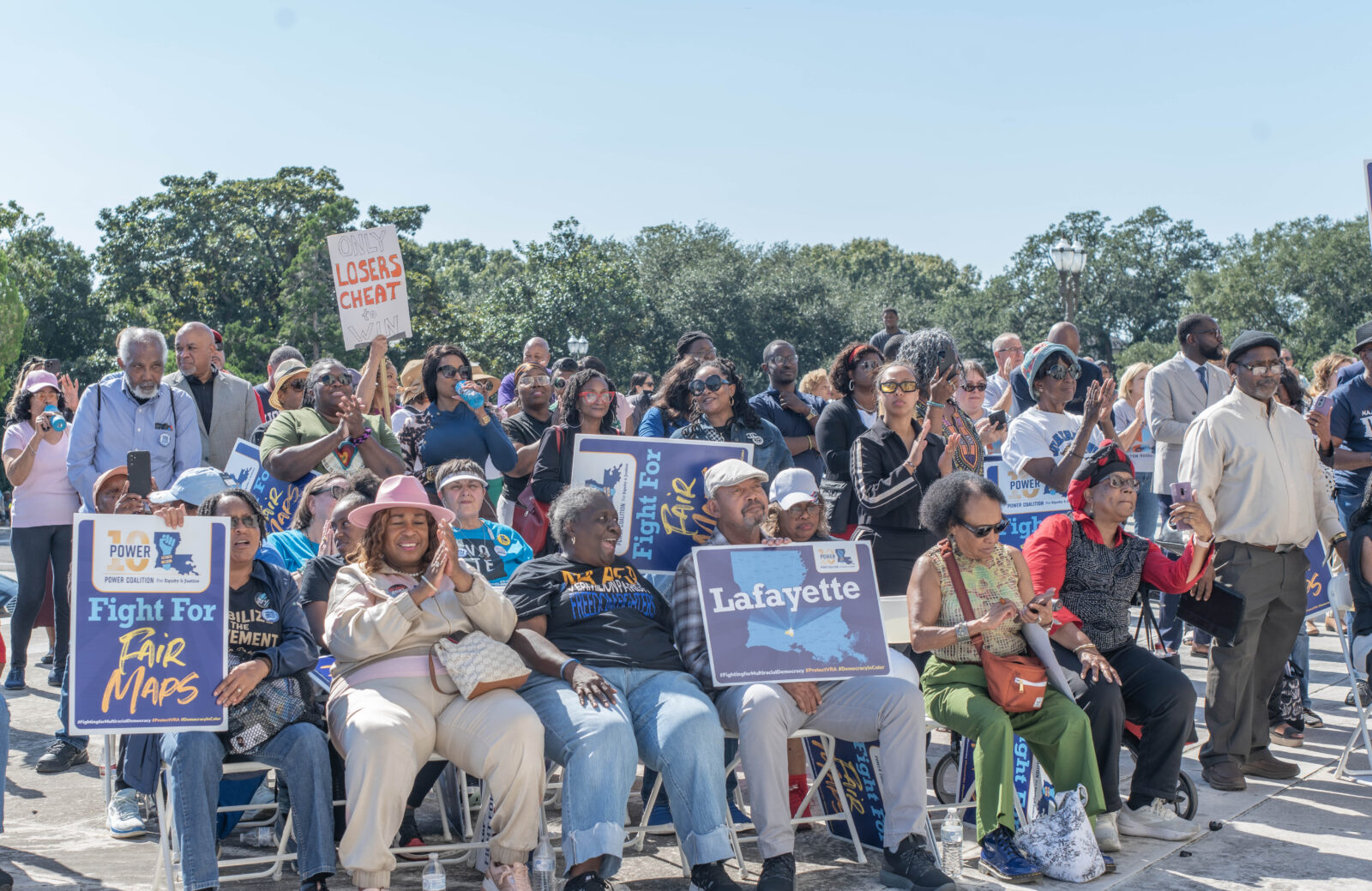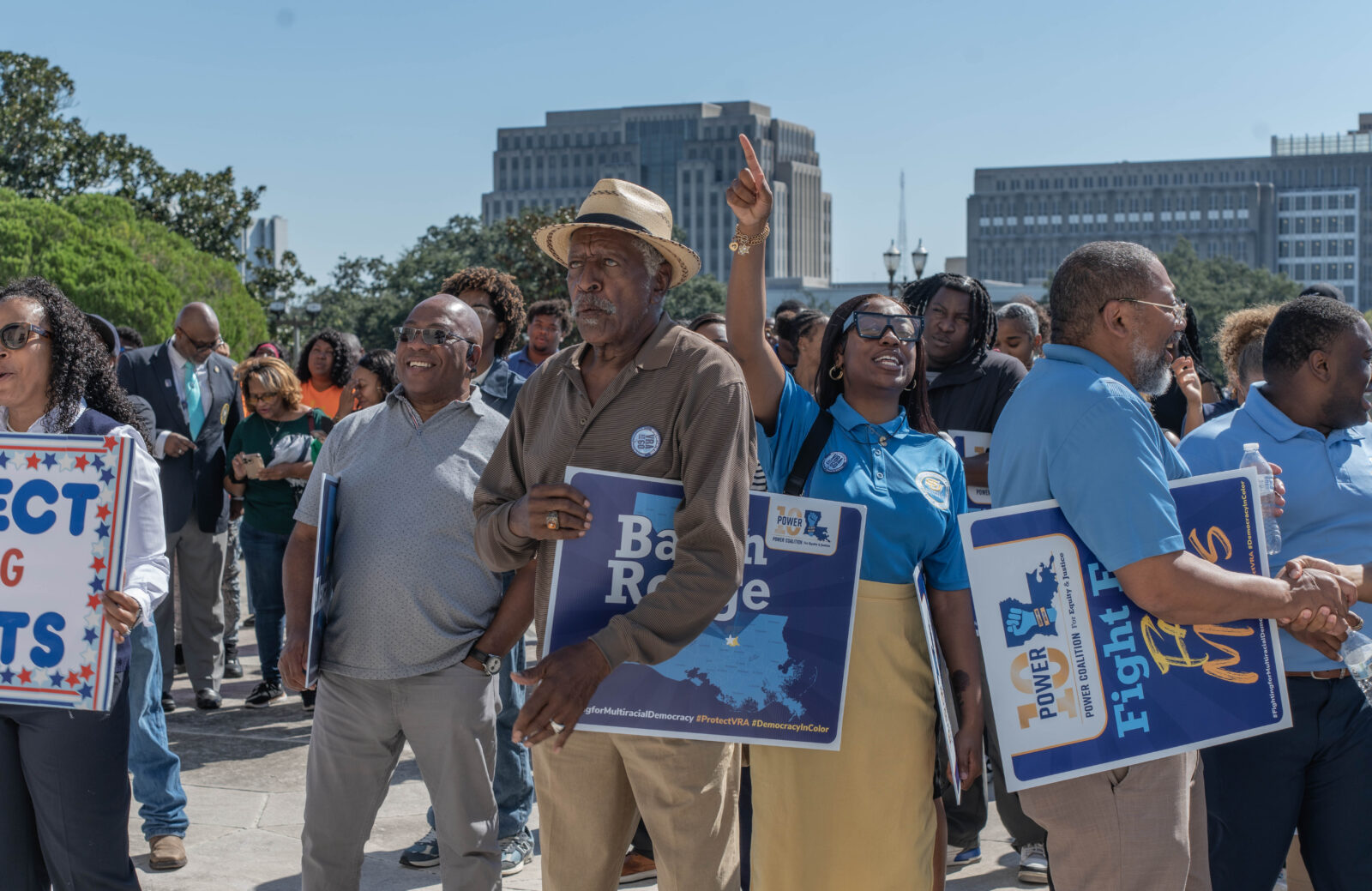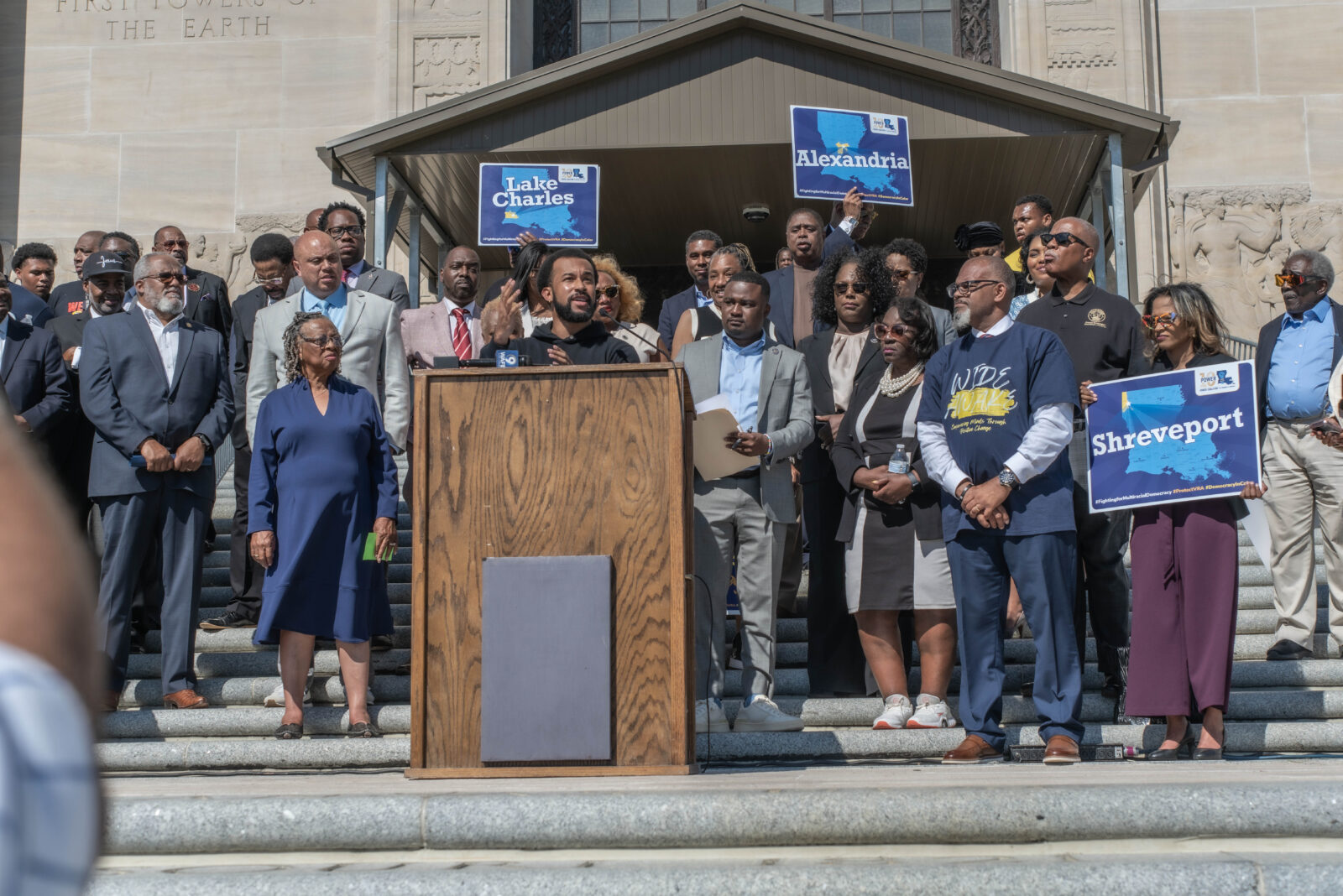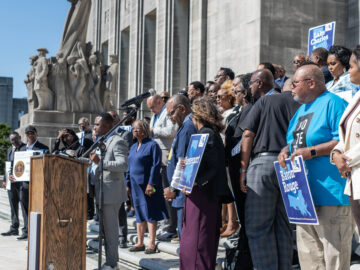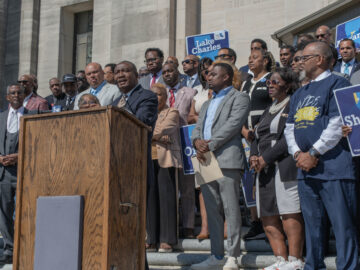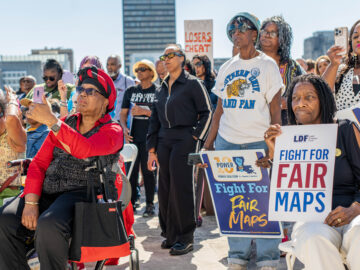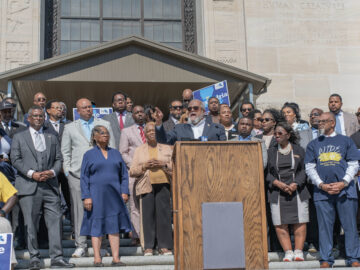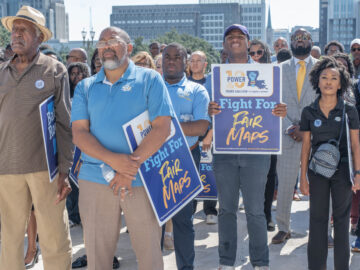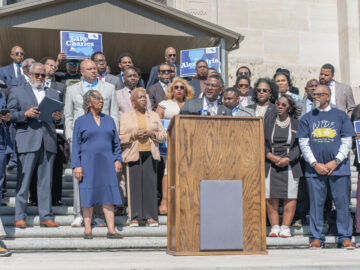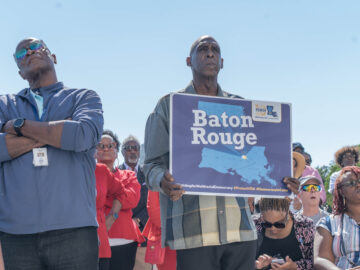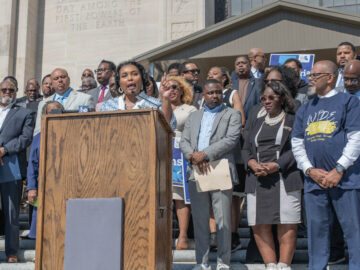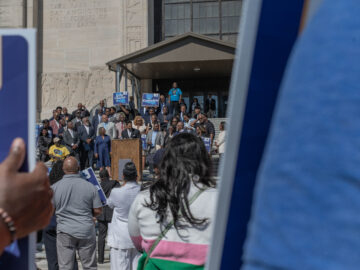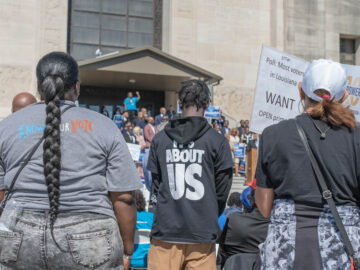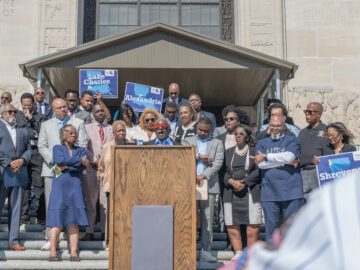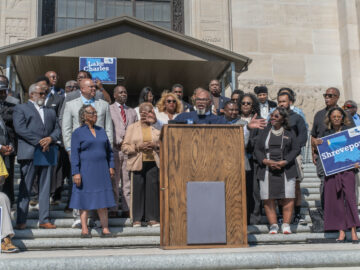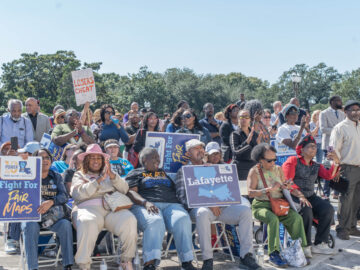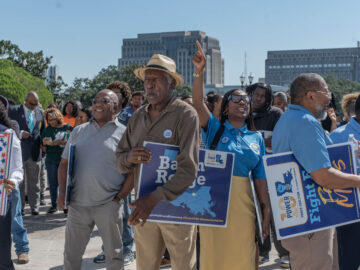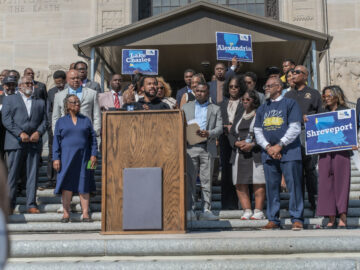On a bright Monday afternoon, the steps of the Louisiana State Capitol filled once again with the chants, songs, and righteous anger of a movement that refuses to die. Banners from the Power Coalition for Equity & Justice waved above the crowd as speakers called for what should be simple but remains contested: fair maps and equal representation.
The rally, organized by the Power Coalition and joined by the NAACP, the Louisiana Legislative Black Caucus, and allied groups, came as the U.S. Supreme Court reconsiders Louisiana v. Callais — a case that could gut one of the last remaining pillars of the Voting Rights Act. At issue is whether Louisiana’s 2024 congressional map — which created a second majority-Black district — violated the Constitution’s Equal Protection Clause. The implications stretch far beyond the state’s borders, threatening decades of precedent protecting minority representation.
But on the Capitol steps, the legal complexities gave way to something older, simpler, and stronger: the demand to be counted.
“Louisiana’s population — 33 percent of it is Black,” Congressman Cleo Fields told the crowd, his voice carrying through the warm air. “About a year and a half later, things have changed. But let me tell you what will not change — the hearts and the minds of the people that are here.”
Fields, who as a member of the state legislature in the late 1980s fought a similar fight more than four decades ago, thanked the Louisiana Legislative Black Caucus for “hard work” in continuing the struggle. “I was with you 42 years ago,” he said. “And I’m with you today.”
His message, though steeped in history, was not nostalgic. It was urgent. “When we go back to Monroe, when we go back to Shreveport, Alexandria, Lake Charles, and New Orleans,” he told the crowd. “Register those 2,000 people who are unregistered. And more importantly — get them out to vote. When we do that, we will send a serious message to every elected official and prospective elected official in this state.”
That urgency echoed throughout the afternoon. Congressman Troy Carter of New Orleans framed the rally as a defining test of democracy itself. “Today we gather not just as Louisianians, but as citizens of a democracy that has been tested time and time again,” Carter said. “When power fears accountability, it changes the rules. It draws lines to benefit the few — not to represent the many”.
Representative Edmond Jordan, chair of the Louisiana Legislative Black Caucus, warned of what he called the “Trump Two-Step” — a strategy to delay elections and redraw districts behind closed doors. “Everything is at stake,” he said, pointing to the math that underpins the fight: a 33 percent Black population and yet a state legislature where Black representation barely cracks 20 percent.
For Ashley Shelton, founder and executive director of the Power Coalition, today’s rally was about momentum — not despair. “The lower courts have already been agreeing with us,” she reminded the crowd. “A fair map is inevitable.”
Denage Piper, president of the local chapter of 100 Black Women, put the issue plainly: “To weaken our voice is voter suppression, plain and simple. Changing the dates doesn’t just shift the calendar — it shifts power. It silences voters.”
The mood turned defiant as Dr. Press Robinson, one of the plaintiffs whose name first appeared on the Robinson v. Landry lawsuit that led to this moment, took the microphone. “We will not let that happen,” he said of Governor Jeff Landry’s stated intent to redraw Louisiana into a 5-1 or 6-0 Republican map if the Supreme Court sides with the state.
As the rally closed, young activist Nate Bryant led a call-and-response that rolled across the Capitol steps and into the streets of Baton Rouge:
“Our voice!” he shouted.
“Our power!” the crowd answered.
He reminded those gathered that this fight was not for a single election cycle — but for a future where “resources, not rhetoric,” define what opportunity looks like in Louisiana.
In a state with a third of its population Black but only one district reflecting that reality, the stakes are unmistakable. The courtroom battle in Louisiana v. Callais may decide the law. But as many of the rally’s speakers made clear, the people gathered outside the Capitol intend to decide the future.

